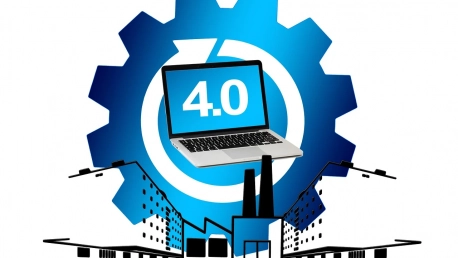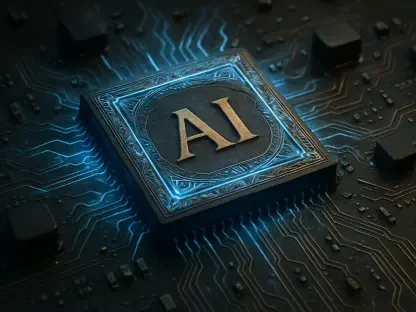Industry 4.0 is propelling a transformative wave across the manufacturing sector, characterized by a synergetic fusion of automation, data exchange, and innovative technologies. This profound evolution, which brings together cyber-physical systems, the Internet of Things (IoT), and cloud computing, heralds the rise of smart factories that exemplify flexibility, efficiency, and customization at an unprecedented scale.This fourth industrial revolution holds the promise of redefining industries, with production becoming more adaptable, resources more efficiently utilized, and global supply chains streamlined. Driven by advanced analytics and intelligence interfaced with physical operations, the future of productivity in manufacturing seems boundless as we venture further into this new industrial era.
The Evolution of Industrial Revolutions
The Birth of Mechanization
The late 18th century marked the onset of the first Industrial Revolution, introducing water and steam power to manufacturing, a stark shift from traditional hand production methods. Though initially limited by the era’s constraints, this mechanization of production processes signalled the beginning of an economic metamorphosis that has since paved the way for subsequent industrial advancements.
The Rise of Mass Production
Propelled by electricity and the assembly line, the second Industrial Revolution ushered in an age of mass production. Emblematic of this era, Henry Ford’s assembly line transformed industrial work and production efficiency, while groundbreaking advancements in transportation and communication remade the landscape of industry and society.
The Dawn of Automation and Computing
With the advent of the third Industrial Revolution in the late 1950s, computers and automation became integral to manufacturing, heralding unprecedented efficiency and digitalization in production. This era set the foundation for today’s smart factories and the Industry 4.0 concepts, emphasizing the importance of a seamless blend of digital tools and manufacturing processes.
Core Features of Industry 4.0
Interconnectivity and IoT
IoT stands as a cornerstone of Industry 4.0, enhancing production through a web of connectivity among machines, devices, and operators. This interconnectivity allows for continuous monitoring, real-time data exchange, and the optimization of manufacturing processes, firmly anchoring IoT within the fabric of modern industrial operations.
Advanced Automation and Cyber-Physical Systems
Industry 4.0 introduces advanced automation and cyber-physical systems that merge physical processes with computational intelligence. These systems offer self-optimization of production lines and represent the future of industrial automation: smart, adaptable, and exceptionally capable.
Leveraging Real-Time Data and Machine Learning
The fusion of real-time data processing with machine learning is pivotal in Industry 4.0, enabling manufacturers to predict and prevent potential issues, optimizing operations and fostering more informed decision-making.
Practical Applications and Benefits
Transforming Supply Chain Management
Industry 4.0 revolutionizes supply chain management with advanced connectivity and real-time data analytics. This enables more transparent, agile, and efficient supply chain operations that help reduce expenses and satisfy consumer demand effectively.
Predictive Maintenance in Action
Predictive maintenance exemplifies Industry 4.0’s drive toward efficiency, employing sensor data and algorithms to anticipate and mitigate equipment failures, minimizing unplanned downtime and maintenance costs.
Asset Tracking and Optimization
Asset tracking, facilitated by Industry 4.0, empowers companies to manage assets with remarkable efficiency. Through real-time tracking and predictive analytics, asset utilization is optimized, reducing costs and enhancing productivity.
Adopting Industry 4.0: Considerations and Challenges
Evaluating Industry Competition and Workforce Dynamics
Transition to Industry 4.0 requires a strategic approach, considering both competitive industry landscapes and the preparedness of the workforce for digital transformations necessitating new skill sets for future industrial integration.
Facing Cybersecurity and Technological Challenges
Embracing Industry 4.0 brings cybersecurity concerns and requires substantial investment in technology and infrastructure, posing challenges that must be overcome through strategic planning and proactive cybersecurity measures.
Cloud-Based Solutions and Adoption Ease
Cloud computing facilities adoption of Industry 4.0 by offering scalable, secure, and integrated services, essential for enhancing operational efficiency and managing the digital transformation seamlessly.
Strategic Decision-Making Through Data
In the Industry 4.0 era, data-driven strategic decision-making is imperative for manufacturing, guiding companies toward more efficient, proactive operational adjustments and helping them maintain a competitive market stance.
Streamlining Operations for Profitability
Adoption of Industry 4.0 technologies significantly cuts operational costs, streamlining processes for increased profitability and providing the economic leverage necessary for reinvestment in continuous technological enhancements and innovation.









